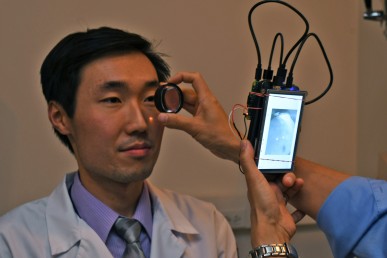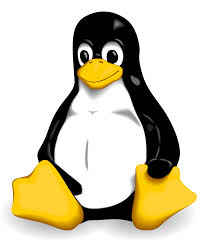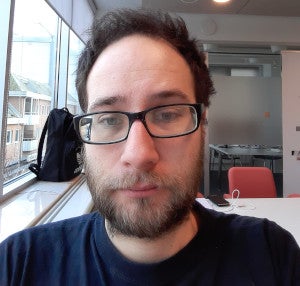open source
See the following -
A New Way Forward for Power Utilities: The Open Smart Grid Platform
 After energy balancing software PowerMatcher was released as open source at Alliander in 2014, I was able to convince more of my colleagues to invest in making more technologies open source. I started the conversation with a question about the Open Smart Grid Platform: "How open is open? Where can I find the code?" The development of the Open Smart Grid Platform started after research was done on how to give municipalities control over their public lighting switching schedule. This schedule is based on ecomomic sense, and is a list of rules for when to switch on and off the street lights. For example, streets lights switch off ten minutes after sunrise...
After energy balancing software PowerMatcher was released as open source at Alliander in 2014, I was able to convince more of my colleagues to invest in making more technologies open source. I started the conversation with a question about the Open Smart Grid Platform: "How open is open? Where can I find the code?" The development of the Open Smart Grid Platform started after research was done on how to give municipalities control over their public lighting switching schedule. This schedule is based on ecomomic sense, and is a list of rules for when to switch on and off the street lights. For example, streets lights switch off ten minutes after sunrise...
- Login to post comments
A New York City Transparency Project Will Open-Source a Look Inside the City's Checkbook
The office of the New York City Comptroller has begun coding up a revamp to a site that already gives a comprehensive look, updated daily, at nearly every check issued by the city. For the first time, the city will also offer software developers direct, programmatic access to a comprehensive trove of information about New York's fiscal health. And within a few weeks after the updated site launches, city officials say, the source code will be released online under an open-source license.
- Login to post comments
A Perspective of Open Source Licensing Models for the Health Care Industry
 Recently, I've had several interesting conversations about how business models based on open source technologies apply to the healthcare industry. While a lot has been written on the subject, I aim to provide a concise summary and some of my personal perspectives on the matter. This article discusses the definition of open source technology and licensing models; a second article will discuss governance models and applications in healthcare...In reality, it's hard to talk about open source licensing without talking about intellectual property (IP) and copyright. Copyright sums up the rights and obligations that the rightful owner associates with the work. The license describes the rights and obligations of any and everyone else, and can be as broad or as limited as the owner chooses.
Recently, I've had several interesting conversations about how business models based on open source technologies apply to the healthcare industry. While a lot has been written on the subject, I aim to provide a concise summary and some of my personal perspectives on the matter. This article discusses the definition of open source technology and licensing models; a second article will discuss governance models and applications in healthcare...In reality, it's hard to talk about open source licensing without talking about intellectual property (IP) and copyright. Copyright sums up the rights and obligations that the rightful owner associates with the work. The license describes the rights and obligations of any and everyone else, and can be as broad or as limited as the owner chooses.
- Login to post comments
A Pocket-Sized Retina Camera, No Dilating Required
 It’s the part of the eye exam everyone hates: the pupil-dilating eye drops. The drops work by opening the pupil and preventing the iris from constricting in response to light and are often used for routine examination and photography of the back of the eye. The drops sting, can take up to 30 minutes to work, and cause blurry vision for several hours afterwards, often making them inconvenient for both patient and doctor. Now, researchers at the University of Illinois at Chicago College of Medicine and Massachusetts Eye and Ear/Harvard Medical School have developed a cheap, portable camera that can photograph the retina without the need for pupil-dilating eye drops...
It’s the part of the eye exam everyone hates: the pupil-dilating eye drops. The drops work by opening the pupil and preventing the iris from constricting in response to light and are often used for routine examination and photography of the back of the eye. The drops sting, can take up to 30 minutes to work, and cause blurry vision for several hours afterwards, often making them inconvenient for both patient and doctor. Now, researchers at the University of Illinois at Chicago College of Medicine and Massachusetts Eye and Ear/Harvard Medical School have developed a cheap, portable camera that can photograph the retina without the need for pupil-dilating eye drops...
- Login to post comments
A Primer on the Open Source Movement from a Health Care Perspective
 Open source, in myriad forms, has emerged as a significant development model that drives both innovation and technological dispersion. Ignore it at your peril, as did the major computer companies destroyed or totally remade by Linux and free software, or encyclopedia publishers by Wikipedia, or journalists and marketers by social media. The term "open source" was associated first with free software, but it goes far beyond software now. People around the world use open hardware, demand open government, share open data, and--yes--pursue open health. The field of health, in particular, will be transformed by open source principles in software, in research, in consultations and telemedicine, and in the various forms of data sharing all these processes call for.
Open source, in myriad forms, has emerged as a significant development model that drives both innovation and technological dispersion. Ignore it at your peril, as did the major computer companies destroyed or totally remade by Linux and free software, or encyclopedia publishers by Wikipedia, or journalists and marketers by social media. The term "open source" was associated first with free software, but it goes far beyond software now. People around the world use open hardware, demand open government, share open data, and--yes--pursue open health. The field of health, in particular, will be transformed by open source principles in software, in research, in consultations and telemedicine, and in the various forms of data sharing all these processes call for.
- Login to post comments
A Quick Look Back on Linux and Open Source 2015
 The year is almost over and what a year it has been. Once again I must bemoan the fact that the year of the Linux desktop has still eluded us. That's okay...for now. Why? Because Linux managed to dominate in a world that is far more important than the desktop. Oh, and there's the fact that the desktop is slowly becoming irrelevant to a large portion of the world. More on that later. If I were to consider the most important piece of the Linux and open source 2015 puzzle, I'd have to say it would be its continued dominance in the Enterprise. This is something no one would have predicted ten years ago. But lo and behold, 2015 saw the continued dominance of Linux in the space of space...big business...
The year is almost over and what a year it has been. Once again I must bemoan the fact that the year of the Linux desktop has still eluded us. That's okay...for now. Why? Because Linux managed to dominate in a world that is far more important than the desktop. Oh, and there's the fact that the desktop is slowly becoming irrelevant to a large portion of the world. More on that later. If I were to consider the most important piece of the Linux and open source 2015 puzzle, I'd have to say it would be its continued dominance in the Enterprise. This is something no one would have predicted ten years ago. But lo and behold, 2015 saw the continued dominance of Linux in the space of space...big business...
- Login to post comments
A Tour of Google's 2016 Open Source Releases
 Open source software enables Google to build things quickly and efficiently without reinventing the wheel, allowing us to focus on solving new problems. We stand on the shoulders of giants, and we know it. This is why we support open source and make it easy for Googlers to release the projects they're working on internally as open source. We've released more than 20-million lines of open source code to date, including projects such as Android, Angular, Chromium, Kubernetes, and TensorFlow. Our releases also include many projects you may not be familiar with, such as Cartographer, Omnitone, and Yeoman...
Open source software enables Google to build things quickly and efficiently without reinventing the wheel, allowing us to focus on solving new problems. We stand on the shoulders of giants, and we know it. This is why we support open source and make it easy for Googlers to release the projects they're working on internally as open source. We've released more than 20-million lines of open source code to date, including projects such as Android, Angular, Chromium, Kubernetes, and TensorFlow. Our releases also include many projects you may not be familiar with, such as Cartographer, Omnitone, and Yeoman...
- Login to post comments
A Ugandan mHealth Moratorium Is a Good Thing
Kampala is comfortable, with mild weather, good infrastructure (Umeme Electricity Co. notwithstanding), and more than its share of international-style restaurants for all those expatriate aid workers. Read More »
- Login to post comments
A Web-native Approach to Open Source Scientific Publishing
 This summer, eLife was pleased to launch Executable Research Articles (ERAs) in partnership with Stencila, allowing authors to post computationally reproducible versions of their published papers in the open-access journal. The open source ERA technology stack delivers a truly web-native format that treats live, interactive code as a first-class asset. It was developed to address current challenges around reproducing and reusing published results-challenges mostly caused by the lack of infrastructure for publishers to showcase the richness and sophistication of the computational methods used by researchers in their work.
This summer, eLife was pleased to launch Executable Research Articles (ERAs) in partnership with Stencila, allowing authors to post computationally reproducible versions of their published papers in the open-access journal. The open source ERA technology stack delivers a truly web-native format that treats live, interactive code as a first-class asset. It was developed to address current challenges around reproducing and reusing published results-challenges mostly caused by the lack of infrastructure for publishers to showcase the richness and sophistication of the computational methods used by researchers in their work.
- Login to post comments
A Whirlwind Tour Of All The Connected Sites That Form The World Of Open Source Social Networks
 People want to communicate over the internet as easily as they do in real life, with similar protections but, potentially, farther reach. In other words, people want to be able to chat with a group of other people who aren't physically in the same location, and still maintain some control over who claims ownership of the conversation. In today's world, of course, a lot of companies have a lot to say about who owns the data you send back and forth over the world wide web. Most companies seem to feel they have the right to govern the way you communicate, how many people your message reaches, and so on. Open source, luckily, doesn't need to own your social life, and so appropriately it's open source developers who are delivering a social network that belongs, first and foremost, to you.
People want to communicate over the internet as easily as they do in real life, with similar protections but, potentially, farther reach. In other words, people want to be able to chat with a group of other people who aren't physically in the same location, and still maintain some control over who claims ownership of the conversation. In today's world, of course, a lot of companies have a lot to say about who owns the data you send back and forth over the world wide web. Most companies seem to feel they have the right to govern the way you communicate, how many people your message reaches, and so on. Open source, luckily, doesn't need to own your social life, and so appropriately it's open source developers who are delivering a social network that belongs, first and foremost, to you.
- Login to post comments
A Whole New Dimension As Manufacturing Goes 3D
If you want to get some idea of the hype surrounding 3D printing, check out what the stockmarket thinks. When Voxeljet, a German manufacturer of 3D, printers staged their initial public offering last month, its shares instantly doubled. [...] Read More »
- Login to post comments
A “Perfect Storm” Moment For Multibillion-Dollar Open Source Companies
[...] With today’s news that Hortonworks, one of our investments, has raised another $100 million in funding, it’s clear that the industry is finally ready to accept and value open source startups as real businesses poised for long-term growth. Read More »
- Login to post comments
Accessibility In Open Source For People With ADHD, Dyslexia, And Autism Spectrum Disorder
 For a long time, attention deficit hyperactivity disorder (ADHD), autism, Asperger syndrome, dyslexia, and other neurodiverse conditions were considered things that hold people back. But now, many researchers and employers recognize that neurodiversity is a competitive advantage, especially in technology, and especially when certain accommodations are provided. This is certainly true for me. I'm a 39-year-old teacher in Sweden diagnosed with ADHD and Asperger's (also referred to as Autism Level 1). I'm also an intermediate Linux user and use it daily for Java programming, productivity, and gaming. I've been using Linux since the late 1990s, and I've learned ways open source programs can be made more accessible for people with these conditions.
For a long time, attention deficit hyperactivity disorder (ADHD), autism, Asperger syndrome, dyslexia, and other neurodiverse conditions were considered things that hold people back. But now, many researchers and employers recognize that neurodiversity is a competitive advantage, especially in technology, and especially when certain accommodations are provided. This is certainly true for me. I'm a 39-year-old teacher in Sweden diagnosed with ADHD and Asperger's (also referred to as Autism Level 1). I'm also an intermediate Linux user and use it daily for Java programming, productivity, and gaming. I've been using Linux since the late 1990s, and I've learned ways open source programs can be made more accessible for people with these conditions.
- Login to post comments
Accountability Goes Both Ways
 Back in 1999, when eZ Systems was founded, it became one of the first organizations to pioneer an open source business model. Years later, in 2009, a Community Board was put in place to govern and grow the community—and to implement a system of accountability that incorporated the commercial entity and the community surrounding it. I'm now Chair of that board. And as Community Manager at eZ Systems, I want to share some of my views on the relationship between the company and the board, in light of one core value of The Open Organization: accountability...
Back in 1999, when eZ Systems was founded, it became one of the first organizations to pioneer an open source business model. Years later, in 2009, a Community Board was put in place to govern and grow the community—and to implement a system of accountability that incorporated the commercial entity and the community surrounding it. I'm now Chair of that board. And as Community Manager at eZ Systems, I want to share some of my views on the relationship between the company and the board, in light of one core value of The Open Organization: accountability...
- Login to post comments
Accumulo: Why The World Needs Another NoSQL Database
If you’ve been unable to keep up with all the competing NoSQL databases that have hit the market over the last several years, you’re not alone. To name just a few, there’s HBase, Cassandra, MongoDB, Riak, CouchDB, Redis, and Neo4J. To that list you can add Accumulo, an open source database originally developed at the National Security Agency... Read More »
- Login to post comments